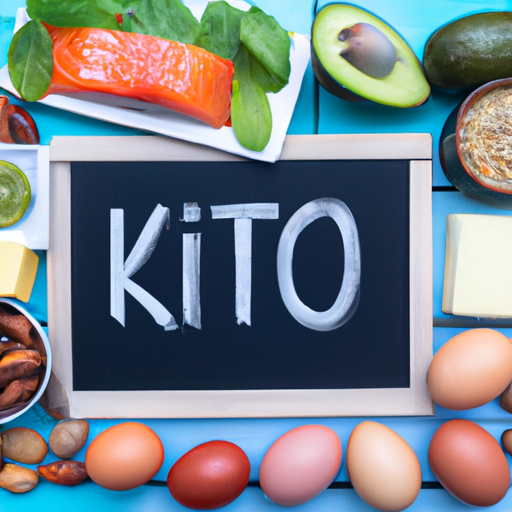As people who seek natural remedies, we have discovered the true effectiveness of seeds in enhancing our digestive health.
Today, we unveil the secrets of chia seeds and their remarkable role in promoting gut health. These tiny seeds, packed with fiber and nutrients, have proven to be a game-changer for our digestive systems.
In this article, we will explore how chia seeds improve digestion and provide practical tips on incorporating them into our daily routine.
Let’s embark on this journey towards a healthier, happier gut together.

Key Takeaways
- Chia seeds aid in digestion by promoting regular bowel movements and preventing constipation.
- The fiber and protein in chia seeds can help increase satiety and reduce appetite, aiding in weight management.
- Chia seeds contain omega-3 fatty acids that support heart health and reduce inflammation in the digestive tract.
- Incorporating chia seeds into meals and recipes can enhance gut health and provide a satisfying and nutritious addition to the diet.
The Role of Chia Seeds in Digestion
Chia seeds play a crucial role in improving digestion by aiding in the breakdown and absorption of nutrients. These tiny seeds are packed with fiber, which adds bulk to the stool and promotes regular bowel movements. This can help prevent constipation and maintain a healthy digestive system.
Additionally, the soluble fiber in chia seeds acts as a prebiotic, providing food for the beneficial bacteria in our gut. This promotes a healthy balance of gut flora and supports optimal digestion.
Chia seeds have also been studied for their potential role in weight loss. The fiber and protein content of chia seeds can help increase satiety and reduce appetite, leading to reduced calorie intake.
Furthermore, the omega-3 fatty acids found in chia seeds have been shown to support heart health by reducing inflammation and improving cholesterol levels.

Incorporating chia seeds into your diet can be a simple and effective way to support a healthy digestive system and overall well-being.
Chia Seeds: A Natural Source of Fiber
Continuing our exploration of digestive health, let’s delve into the benefits of chia seeds as a natural source of fiber.
Chia seeds are small, nutrient-dense powerhouses that can be easily incorporated into your diet. Just one ounce of chia seeds contains a whopping 10 grams of fiber, making them an excellent choice for those seeking to increase their fiber intake.
Fiber plays a crucial role in maintaining a healthy digestive system by promoting regular bowel movements and preventing constipation. Additionally, chia seeds can aid in weight loss as they expand in the stomach, helping you feel fuller for longer.

To reap the benefits of chia seeds, try adding them to smoothies, oatmeal, or yogurt.
Stay tuned as we explore how chia seeds can promote gut health in the next section.
Promoting Gut Health With Chia Seeds
To further enhance our understanding of gut health, let’s explore how incorporating chia seeds into our diet can promote a healthy digestive system. Chia seeds are a nutritional powerhouse, packed with fiber, omega-3 fatty acids, and antioxidants.
Here are two ways chia seeds can benefit our gut health:

- Improved digestion: Chia seeds are rich in soluble fiber, which can help regulate bowel movements and prevent constipation. This fiber also acts as a prebiotic, providing nourishment for the beneficial bacteria in our gut, promoting a healthy microbiome.
- Weight management support: Chia seeds can be a helpful addition to a weight loss journey. When mixed with liquid, chia seeds form a gel-like substance that expands in the stomach, promoting a feeling of fullness. This can help control appetite and reduce calorie intake.
Incorporating chia seeds into our diet is easy with delicious chia seed recipes like chia pudding, smoothies, and overnight oats. These recipes not only enhance our gut health but also provide a satisfying and nutritious addition to our meals.
Chia Seeds and the Digestive System
How can incorporating chia seeds into our diet further enhance our digestive health? Chia seeds have been shown to have positive effects on the digestive system, particularly in relation to constipation and bloating. These tiny seeds are rich in dietary fiber, which adds bulk to stools and promotes regular bowel movements, relieving constipation. The soluble fiber in chia seeds absorbs water and forms a gel-like substance in the digestive tract, softening the stool and making it easier to pass. Additionally, chia seeds contain natural enzymes that aid in digestion and help reduce bloating. To emphasize the benefits of chia seeds for digestive health, take a look at the table below:
| Benefits of Chia Seeds for Digestive Health |
|---|
| Relieves constipation |
| Reduces bloating |
| Adds bulk to stools |
| Promotes regular bowel movements |
| Aids in digestion |
How Chia Seeds Improve Digestive Function
Incorporating chia seeds into our diet significantly enhances our digestive function through their ability to improve bowel regularity and reduce bloating.
Chia seeds are rich in fiber, which promotes regularity by adding bulk to the stool and aiding in its passage through the digestive system. This helps prevent constipation and ensures smooth bowel movements.

Additionally, chia seeds contain omega-3 fatty acids, which have anti-inflammatory properties. By reducing inflammation in the digestive tract, chia seeds can help alleviate symptoms of digestive disorders such as irritable bowel syndrome (IBS) and inflammatory bowel disease (IBD).
Moreover, chia seeds are a good source of antioxidants, which can further reduce inflammation and protect the digestive system from damage caused by free radicals.
Frequently Asked Questions
Can Chia Seeds Help With Weight Loss?
Chia seeds can help with weight loss as they act as a natural appetite suppressant. Incorporating chia seeds into your diet can help you feel full for longer, reducing the urge to overeat.
Are There Any Side Effects of Consuming Chia Seeds?
There can be potential allergies and long-term effects associated with consuming chia seeds. It’s important to be aware of these risks and consult with a healthcare professional before incorporating them into your diet.

How Should Chia Seeds Be Prepared for Optimal Digestive Benefits?
To maximize the digestive benefits of chia seeds, we recommend preparing them in chia seed recipes that include soaking them in liquid. This helps to enhance their natural gel-like consistency, making them easier to digest and absorb nutrients.
Can Chia Seeds Help Alleviate Symptoms of Constipation?
Chia seeds are a natural way to improve gut health and promote regularity. Studies suggest that chia seeds can help alleviate symptoms of constipation by adding bulk to the stool and aiding in digestion.
Are There Any Recommended Daily Intake Guidelines for Chia Seeds to Improve Digestive Health?
There aren’t any specific daily intake guidelines for chia seeds to improve digestive health, but incorporating them into your diet through chia seed recipes can be beneficial for gut health.
Conclusion
In conclusion, chia seeds are a natural powerhouse for enhancing digestive health. With their high fiber content, they act as a gentle scrub for the digestive system, promoting regularity and preventing constipation.

Their ability to absorb water helps to keep the digestive tract hydrated and lubricated. By adding chia seeds to your diet, you can support optimal digestive function and enjoy a smoother, more efficient digestive process.
So go ahead and sprinkle some chia seeds on your meals, and let their real seed power work its magic on your gut.









